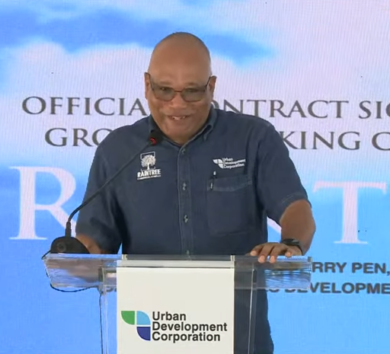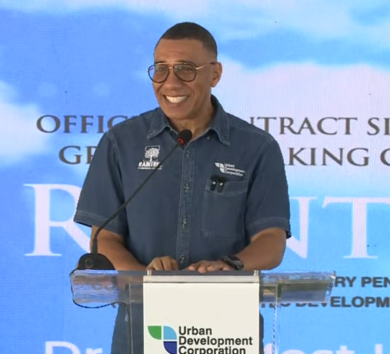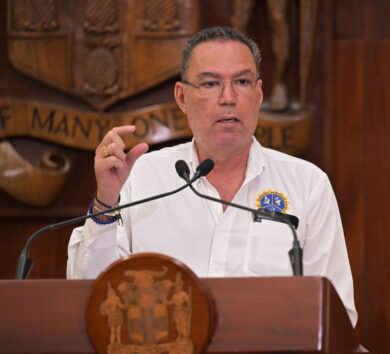

The Government is investing more than $4.5 billion through the Rural Economic Development Initiative II (REDI II) programme, aimed at driving sustainable growth across the agriculture and tourism sectors.
The investment, slated for rollout over the next two years, is designed to create long-term economic opportunities, reduce poverty and enhance livelihoods, particularly in rural communities across Jamaica.
Managing Director, Jamaica Social Investment Fund (JSIF), Omar Sweeney, told JIS News that several projects will be undertaken under REDI II.
“Under REDI II, more than a billion dollars in greenhouse clusters will be implemented at around 22 sites across the country,” said Sweeney.
He noted that farming groups have already been engaged, and the designs finalised.
“Within the next 12 months those are going to be on the ground, and that will be a big push in targeting our food import bill [and] enabling these farmers to get better access to the markets—the hotel markets in particular, and export markets,” Sweeney added.
He also indicated that there will be continued investments in cold storage, noting that a contract has been signed for the development of a new cold storage facility in Manchester to support the one in Annotto Bay, St Mary.
“We’re going to be doing work on the Plantain Garden River and the Ebony Park Agro-Parks. We’ve added irrigation infrastructure working with the National Irrigation Commission and Agro-Invest. We are also constructing a state-of-the-art facility with the National Fisheries Authority in Twickenham Park, and that’s going to increase the capacity of fingerlings from 500,000 to five million over time,” Sweeney added.
He further informed that REDI II, being implemented by JSIF, will also focus on enhancing Jamaica’s tourism product by supporting small businesses involved in community-based tourism.
“Persons who have small attractions, small entertainment venues, small gastronomy products, they will be supported under REDI II to develop their product and be able to integrate it within the Jamaica tourism product,” Sweeney explained.
He noted that the goal is to move beyond the traditional all-inclusive model by showcasing more authentic Jamaican experiences that resonate with both visitors and locals.
“We are working with the Tourism Product Development Company (TPDCo) in this regard to see how we can get them properly licensed with all the safety, equipment and certifications that you would expect of a world-class facility,” said the managing director, adding that these businesses will also receive support in marketing their product on social media sites.
REDI II, which started in 2019/20, is funded by the World Bank, through a loan agreement with the Government of Jamaica.







Comments